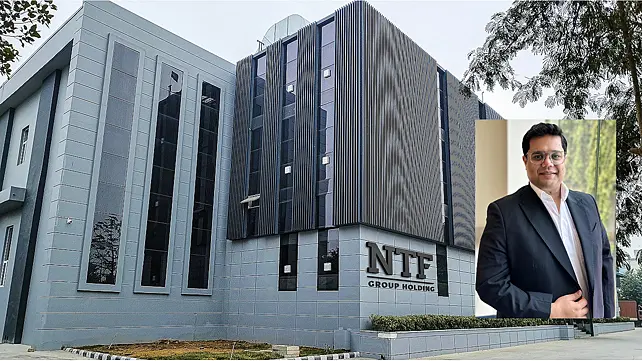
NTF Group Holding is looking to increase its business share in the auto components market, especially in the advanced composites and engineering plastics domain.
In a conversation with Mobility Outlook, Naman Jain, Director, NTF India explained how value-added goods are becoming the need of the hour, and how the same will help the company scale its business further.
“It was all about conventional components a few years ago, but about 30% of what we supply to automobile OEMs today are value-added goods,” he said. A normal parcel tray in a car, he explained, is a conventional component, but a parcel tray with an embedded light and a retractable sunshade is seen as a value-added tray.
Suppliers today have to choose between two options – either put together the whole solution themselves or send the components to other suppliers for adding features required by the OEM. Jain said NTF is working with the first approach and has put together a design and engineering set-up to provide a complete solution to its customers.
Also Read: Varroc Engineering Sells 4W Lighting Business To Compagnie Plastic Omnium SE
As per Markets and Markets, the global automotive market for plastics and engineered composites was valued at $21.1 billion, and the same is projected to be worth $30.8 billion by 2030.
Expanding Capacity, Capability
In 2022, the company made fresh investments of INR 50 crore towards expanding capacity at its Gujarat, Bangalore, and Manesar facilities. The facility in Gujarat is the newest among its eight manufacturing locations in India. NTF expects to close FY23 with revenues of $75 million.
“With the content of plastics and engineering composites increasing in the vehicles of today, we are anticipating a big demand from the sector, and are of the view that a lot of investments would need to be made during the next five years,” Jain said.
The Mahindra XUV700 is one of the first cars by an Indian OEM to feature a tailgate made of engineered composites and plastics, Jain said. The company counts among its customers major OEMs, including Maruti Suzuki, Toyota, Volkswagen-Skoda, FCA, JBM, MG, Nissan, Honda, Renault, Ashok Leyland, CNH, Tata, Mercedes Benz, and others.
This is just the tip of the iceberg, said Jain, as “OEMs have already started research on replacing other panels of the vehicles with similar materials”. However, the bigger challenge for the company is to develop plastics and composites that are sustainable.
Jain explained, “We are working on a lot of sustainable alternatives, but many of these are expensive. As we research further and work on prototypes, we hope these materials start getting adopted, bringing down costs further.”
Collaboration As An Enabler
With increasing complexities and rising demands for efficiency, performance and sustainability, auto component suppliers will have to rely on collaborations rather than competition. This is because value-added products require many suppliers to come together and work on finishing a project, said Jain.
“If a plastic or composite component has to be equipped with lights or sensors, the same will require at least two to three suppliers and designers coming together to ideate and manufacture the same,” Jain said.
For NTF Group Holding, the investment for the next five years will focus on R&D in light-weighting, automation and IoT 4.0, and further expansion of infrastructure.
Also Read: Sumika Joins Hexagon To Reduce Plastic Carbon In New Vehicles